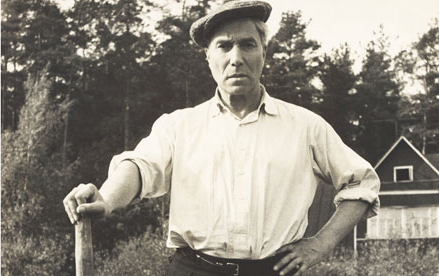If English literary critic William Hazlitt was correct in his assertion that “When a thing ceases to be a subject of controversy, it ceases to be a subject of interest,” we can assume that the 1958 Nobel Prize in Literature awarded to Boris Pasternak will remain relevant through the ages.
Perhaps even more devastating than being completely passed over as a laureate because of political strife is to have been forced to decline the accolade, as Pasternak did, in response to threats of imprisonment and excommunication.
To comprehend the extreme tumult that arose from the announcement of his Nobel achievement is to get a glimpse into the life of a man that was marked with a relentless suffering amidst ridicule, criticism, and unceremonious shaming. The completed work of Doctor Zhivago was a culmination of nearly forty years of literary work on behalf of Pasternak. Parts of the novel are said to have been written as early as 1910 to 1920, not seeing completion until its reveal in 1956.
Soviet critics proclaimed the theme of the novel to be anti-soviet and banned its publication. It is only thanks to the tenacity of an appointed Communist Party journalist dispatched to plunge into the cultural life of the Soviet Union that the novel saw publication through an independent Milanese publisher, Giangiacomo Feltrinelli, who repeatedly defied demands to cancel printing the novel in 1957. When he handed the manuscript over to be smuggled out of the country, Pasternak ominously told the journalist, “You are hereby invited to watch me face the firing squad.”
Feltrinelli believed so strongly in the work of Pasternak that he proclaimed he had “no right” to withhold the masterpiece from the world, and that the censorship of the novel “would be an even greater crime” than his refusal to submit to threats from the Soviet government. As a result of his contribution in furthering the distribution of critical communist literature, he was expelled.
The political party of Russia was not surprisingly humiliated and enraged by the novel’s publication. The Soviets condemned Doctor Zhivago and its themes that idealized the agrarian civilization of the past and whose characters showed more sympathy and concern for the welfare of the individual over society in stark contrast to the goal of Russia’s cultural movement to socialism and an international industrial power. The book was banned by Soviet critics.
Although Pasternak’s entire life’s work was dedicated to literature as a poet, translator and novelist, the recognition he received for Doctor Zhivago is unparalleled. Pasternak was entrenched in controversy and oppression from the Communist Party of the Soviet Union from the onset of his work’s exposition.
In the aftermath of World War II, and in the later years of the Soviet Union’s rule under dictator Joseph Stalin, rumors began circulating about Boris Pasternak’s nomination to receive the prestigious Swedish award for outstanding work in the field of literature. Pasternak responded dubiously, certain he would be passed over, but when announced as the winner in 1958, he wrote the Swedish Academy that he was infinitely grateful, touched, proud, surprised, and overwhelmed.
Between the 1957 publication and the announcement in October of 1958 of his award of the Nobel Prize in Literature, Pasternak faced threats from the KGB of arrest and of ultimate exile from the world’s first self-proclaimed socialist state. Fearing for the safety of his life and the welfare of his family—and assured denial of reentry to the Soviet Union—he wrote a refusal of the award: “In view of the meaning given by the society in which I live, I must renounce this undeserved distinction which has been conferred on me. Please do not take my voluntary renunciation amiss.”
The Swedish Academy responded that his refusal, of course, in no way altered the validity of the reward, and that they would simply announce with regret that the presentation of the prize cannot take place. Boris Pasternak is still considered the Laureate of The Nobel Prize in Literature “for his important achievement both in contemporary lyrical poetry and in the field of the great Russian epic tradition,” despite his refusal.










